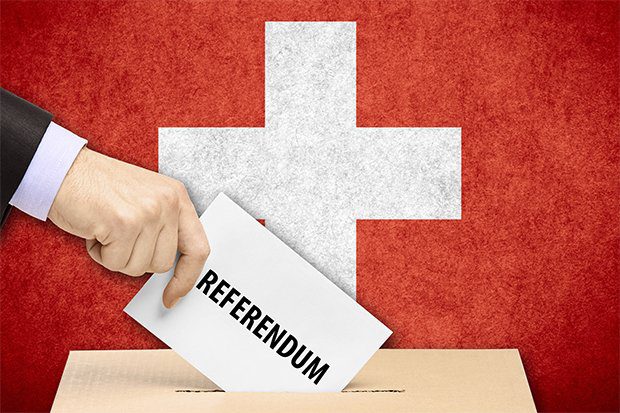
In a referendum held on Sunday February 13th, a majority of Swiss voters rejected passing a law to boost state funding for private media companies, which was meant to compensate for the losses caused by diminishing advertising revenues over the past years. More than 55% of the constituency voted against the law that had previously passed in parliament.
The proposed law had been supported by most Left leaning parties, large parts of the media, and organizations such as Reporters Without Borders. They claimed that state funding would help ensure regional newscasting throughout the country—a goal considered important “for the populace” and “for direct democracy.” Their proposal was meant to address the steady attrition of news providers over the past two decades. In 2000, Swiss newspapers were able to generate a revenue of more than 2 billion Francs through advertising; by 2020, that amount had decreased to less than 500 million Francs. As a result, more than 70 Swiss newspapers have disappeared since 2003.
Opposition to the package came mostly from the Right, especially from the Schweizer Volkspartei, who initiated the referendum. Their fear was that the new law would allow the government to “buy” free media, severely damaging a pillar of democracy by inhibiting media independence.
A grand total of 151 million Swiss Francs were to be allocated to subsidizing media, most of which would have been taken from the existing license fee and from the federal budget. This money would have been primarily used to subsidize deliveries of newspapers, but also to support local and regional radio and TV stations, as well as online media.
The Swiss Communications Minister Simonetta Sommaruga warned that “without this package, there is a risk that more newspapers will disappear, that local radio will be weakened, and that certain regions will no longer have news sites.”
Her claim was countered from the Right, who argued that it would be the wealthiest publishers and biggest media companies that would benefit most from the project, those which had generated significant profits over the last years. They also voiced concern that with ‘bought’ media, subsidizers may try to silence criticism of politicians and other authorities.
In other referendums held that day, Swiss voters also rejected a proposal to ban medical and scientific experiments on animals, but approved tighter restrictions on tobacco advertising.
